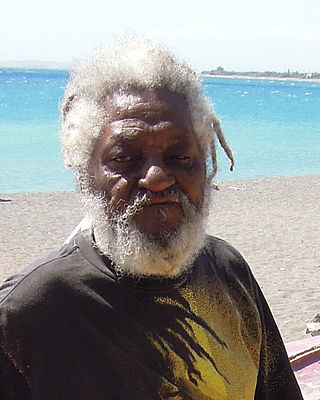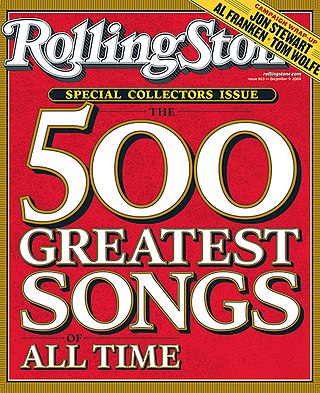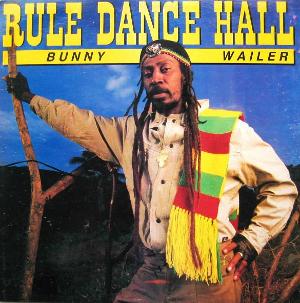Related Research Articles
Hard rock or heavy rock is a heavier subgenre of rock music typified by aggressive vocals and distorted electric guitars. Hard rock began in the mid-1960s with the garage, psychedelic and blues rock movements. Some of the earliest hard rock music was produced by the Kinks, the Who, the Rolling Stones, Cream, Vanilla Fudge, and the Jimi Hendrix Experience. In the late 1960s, bands such as Blue Cheer, the Jeff Beck Group, Iron Butterfly, Led Zeppelin, Golden Earring, Steppenwolf, and Deep Purple also produced hard rock.
Rocks is the fourth studio album by American rock band Aerosmith, released on 3 May 1976. AllMusic described Rocks as having "captured Aerosmith at their most raw and rocking." Rocks was ranked number 366 on the updated Rolling Stone's list of the 500 Greatest Albums of All Time in 2020. It has influenced many hard rock and heavy metal artists, including Guns N' Roses, Metallica, and Nirvana. The album was a commercial success, charting three singles on the Billboard Hot 100, two of which reached the Top 40. The album was one of the first to ship platinum when it was released, and has since gone quadruple platinum.

Catch a Fire is the fifth studio album by the reggae band The Wailers, released in April 1973. It was their first album released by Island Records. After finishing a UK tour with Johnny Nash, they had started laying down tracks for JAD Records when a disputed CBS contract with Danny Sims created tensions. The band did not have enough money to return to Jamaica, so their road manager Brent Clarke approached producer Chris Blackwell, who agreed to advance The Wailers money for an album. They instead used this money to pay their fares back home, where they completed the recordings that constitute Catch a Fire. The album has nine songs, two of which were written and composed by Peter Tosh; the remaining seven were by Bob Marley. While Bunny Wailer is not credited as a writer, the group's writing style was a collective process. For the immediate follow-up album, Burnin', also released in 1973, he contributed four songs. After Marley returned with the tapes to London, Blackwell reworked the tracks at Island Studios, with contributions by Muscle Shoals session musician Wayne Perkins, who played guitar on three overdubbed tracks. The album had a limited original release under the name The Wailers in a sleeve depicting a Zippo lighter, designed by graphic artists Rod Dyer and Bob Weiner; subsequent releases had an alternative cover designed by John Bonis, featuring an Esther Anderson portrait of Marley smoking a "spliff", and crediting the band as Bob Marley and the Wailers.

Aerosmith is the debut studio album by the American rock band Aerosmith, released on January 5, 1973, by Columbia Records. "Dream On", originally released as a single in 1973, became an American top ten hit when re-released on 27 December 1975. The album peaked at number 21 on the US Billboard 200 album chart in 1976.
Richard Cole was an English music manager, who was involved in the rock music business from the mid-1960s to 2003. He is most known for having been the tour manager of English rock band Led Zeppelin from 1968 to 1980.
The Rolling Stones Mobile Studio is a mobile recording studio inside a DAF F1600 Turbo truck, once owned by the English rock band The Rolling Stones. Numerous bands and artists have recorded music using the RSM, including The Who, Dire Straits, Deep Purple, Lou Reed, Bob Marley, Horslips, Nazareth, Fleetwood Mac, Bad Company, Status Quo, Led Zeppelin, Iron Maiden, Wishbone Ash, Motörhead and the Rolling Stones themselves. Today, the RSM resides at the National Music Centre in Calgary, where it remains a fully operational recording studio.

"The Ocean" is a song by English rock band Led Zeppelin, from their 1973 album Houses of the Holy. The ocean is a metaphor for the "sea of heads" faced by lead singer Robert Plant "in the auditoriums", according to the group's biographer Dave Lewis.
"What Is and What Should Never Be" is a song by English rock band Led Zeppelin. It was written by Jimmy Page and Robert Plant and was included as the second track on Led Zeppelin II (1969).
"Carouselambra" is the fifth song on Led Zeppelin's 1979 album In Through the Out Door. The title refers to the first section of the song that has similarities to carousel music. At more than 10 minutes in length, the song is the second-longest the band recorded in the studio. John Paul Jones' synthesizers dominate the song, with Jimmy Page's guitar playing a supporting role.

No One Here Gets Out Alive was the first biography about the lead singer and lyricist of the rock band the Doors, Jim Morrison, published in 1980. Its title is taken from a line in the Doors' song "Five to One", and the book is divided into three sections: The Bow is Drawn, The Arrow Flies and The Arrow Falls, for the early years of Morrison's life, his rise to fame with the Doors, and then his final years and death. The book was written by Jerry Hopkins and Danny Sugerman.
"Police and Thieves" is a reggae song first recorded by the falsetto singer Junior Murvin in 1976. It was covered by the punk band The Clash and included on their self-titled debut album released in 1977.

Alvin "Seeco" Patterson was a Cuban-born Jamaican percussionist. He was a member of The Wailers Band.

"The 500 Greatest Songs of All Time" is a recurring song ranking compiled by the American magazine Rolling Stone. It is based on weighted votes from selected musicians, critics, and industry figures. The first list was published in December 2004 in a special issue of the magazine, issue number 963, a year after the magazine published its list of "The 500 Greatest Albums of All Time". In 2010, Rolling Stone published a revised edition, drawing on the original and a later survey of songs released up until the early 2000s.
"Friends" is a song by English rock band Led Zeppelin. It was written by Jimmy Page and Robert Plant in 1970 at Bron-Yr-Aur, a small cottage in Wales where they stayed after completing a concert tour of the United States. The song was released on Led Zeppelin III (1970), where it appears as the second track. Biographer Stephen Davis called the piece "Jimmy's [Page's] last stab at psychedelia".

Robert Nesta Marley was a Jamaican reggae singer, guitarist, and songwriter. Considered one of the pioneers of the genre, he fused elements of reggae, ska and rocksteady and was renowned for his distinctive vocal and songwriting style. Marley increased the visibility of Jamaican music worldwide and made him a global figure in popular culture. He became known as a Rastafarian icon, and he infused his music with a sense of spirituality. Marley is also considered a global symbol of Jamaican music and culture and identity and was controversial in his outspoken support for democratic social reforms. Marley also supported the legalisation of cannabis and advocated for Pan-Africanism. In 1976, Marley survived an attempted assassination in his home, which was believed to be politically motivated.

Dennis Morris is a British photographer, best known for his images of Bob Marley and the Sex Pistols.

"It's Nobody's Fault but Mine" or "Nobody's Fault but Mine" is a song first recorded by gospel blues artist Blind Willie Johnson in 1927. It is a solo performance with Johnson singing and playing slide guitar. The song has been interpreted and recorded by numerous musicians in a variety of styles, including Led Zeppelin on their 1976 album Presence.
Catherine Simon is an American portrait photographer and writer. She is known for her photographs of influential musicians, artists, and writers, including The Clash, Patti Smith, Madonna, Andy Warhol, and William S. Burroughs. One of her photographs of Bob Marley was used on the front cover of his 1978 album, Kaya.

Rule Dance Hall is an album by the Jamaican reggae musician Bunny Wailer. It was released in 1987 via Shanachie Records.
References
- 1 2 Davis, Stephen (1985), Hammer of the Gods. New York: Ballantine Books. ISBN 0-345-33516-3, p. 360
- ↑ Simon Sweetman, "Rock Stars in need of money/therapy", Stuff.co.nz, January 20, 2011.